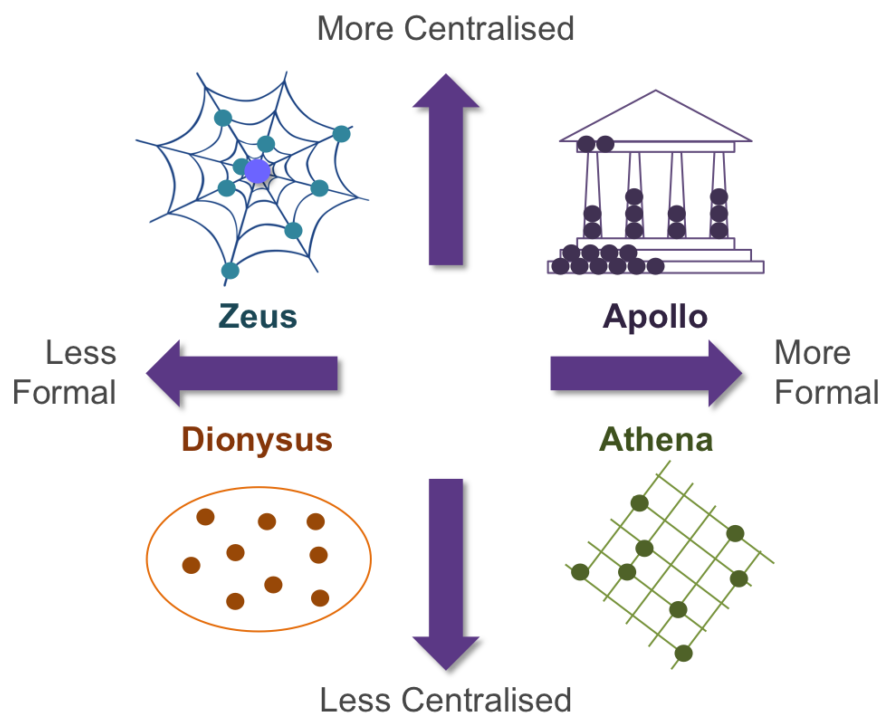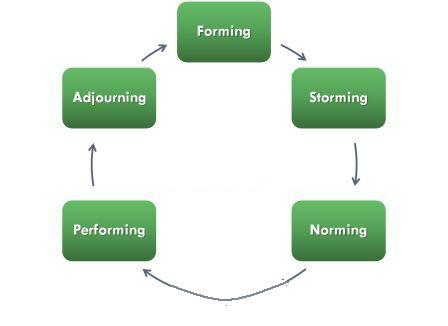Leadership is an integral part of management and plays a vital role in managerial operations. Leadership provides direction, guidance, and confidence to the employees and helps in the attainment of goals in much easier way. In business and industrial organizations, managers play the role of leader and acquire leadership of subordinates, their efforts towards the achievement of organizational goals and activate the individuals of an organization to make them work. Leadership influences behavior of the individuals. It has an ability to attract others and potential to make them follow the instructions. Individuals can be induced to contribute their optimum towards the attainment of organizational goals through effective leadership.… Read the rest
Organizational Behavior
Contemporary Forms of Organizational Design
Organizational design is the overall configuration of structural components that defines jobs, groupings of jobs, the hierarchy, patterns of authority, approaches to co-ordination and line-staff differentiation into a single and unified organizational system. Consider, for example, the differences in organizational design that might exist between a computer manufacturer and university. Since the computer manufacturer has to respond to frequent technological breakthroughs and changes in its competitive environment, it is likely to have a relatively flat and decentralized design whereas the university has a more stable environment and is less affected by technology. Therefore, it has a more centralized structure with numerous rules and regulations.… Read the rest
Four Typologies of Organizational Culture
In organizational culture there are many kind of categorization and typologies have been explained by different scholars of culture. Theses typologies give and over view about the different cultures which exist in organizations. Handy (1985) was the person who discussed how different cultures have their existence in different organizations and within the same organization many diverse cultures can coexist. There are very few organizations exist who have a single culture exists in them. Every individual have its own culture within him and have his own specific personality and culture along with organizational culture. Organizational culture and structure of any organization are connected with each other.… Read the rest
Team Development Life Cycle
When a number of individuals begin to work at interdependent jobs, they often pass through several stages as they learn to work together as a team. The stages of team development life cycle are forming, storming, norming, performing, and adjourning. This model of team development was first proposed by Bruce Tuckman in 1965, who maintained that these phases are all necessary and inevitable and allow team growth.
Though these are not followed rigidly, they do represent a broad pattern that may be observed and predicted in many settings across team’s time together. These stages are the result of a variety of questions and issues that team members face such as “who will be members of the team?”… Read the rest
Process of Team Building
Team building attempts to improve effectiveness of the team by having team members to concentrate on:
- Setting goals and priorities for the team.
- Analyzing how team’s goals and priorities are linked to those of the organization.
- Analyzing how the work is performed.
- Analyzing how the team is working, and
- Analyzing the relationships among the members who are performing the job.
The process of team building is a collection of steps which lead to a specific change in the approach among people, to make effective teams. Various steps of team building process are not one-shot action, rather, they are repetitive and cyclical.… Read the rest
Survey Feedback as an Organizational Development Tool
The study of Survey Feedback played an important role in formation and history of Organizational Development (OD). Developed as an organization wide intervention by Mann and his associates (1957-1965), survey feedback is a process in which organizational members complete questionnaires on various organizational issues, receive feedback on the results, then take appropriate actions to address the critical needs and concerns.
Though some type of survey method was prevalent in various organizations earlier, Institute for Social Research (ISR) of University of Michigan, USA developed a comprehensive questionnaire for conducting survey in different aspects of an organization. The basic objectives of survey feedback method are as follows:
- To assist the organization in diagnosing its problems and developing action plan for problem-solving.



